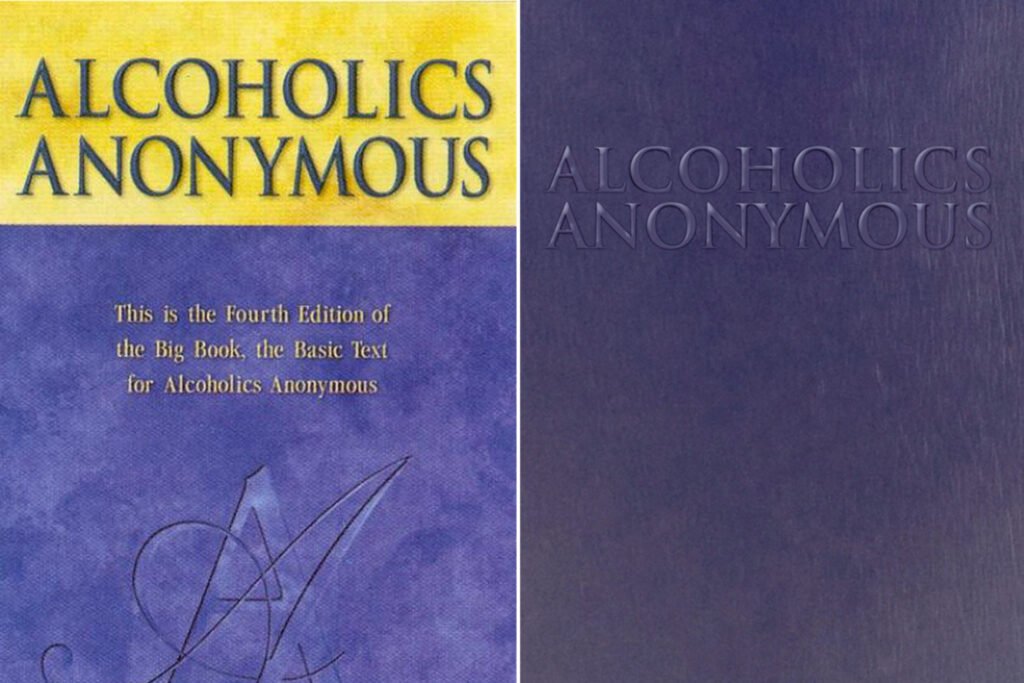What Does 'Friends of Bill' or 'Friends of Bill W.' Mean? Who Was Bill Wilson?
What does 'Friends of Bill' mean?
“Friends of Bill” or “Friends of Bill W.” is a discreet term commonly used to refer to members of Alcoholics Anonymous (AA) or individuals who are in recoveryThe process by which addicts attempt to break the hold a certain substance or behavior has on their lives. This can refer to participation in a wide variety of methods. What they all have in common, is a sense that life is improving and the addict is regaining control. More from alcoholAn organic compound used in many products, most notably intoxicating drinks. Alcohol addiction is known as alcoholism. The first 12-step program was devised to deal with that malady. More addiction. The phrase alludes to William Griffith Wilson, often known as Bill W.Bill W., formally known as William Griffith Wilson, is a name that resonates deeply within the realms of addiction recovery and self-help. As one of the co-founders of Alcoholics Anonymous (AA), Bill W.’s life journey and struggles with alcoholism are meticulously detailed in the Big Book of AA, a f… More, who co-founded AA alongside Dr. Bob Smith. The term underscores the importance of anonymityAlcoholics Anonymous and all the 12 step groups modeled after it, protect the anonymity of its members. Members are forbidden from disclosing the identity of other addicts to outside sources or identifying themselves with the group on any form of public media. The idea behind this is to focus on the… More within the AA community.
Beyond its use in AA meetings, the term has found its way into various contexts such as cruise ships, biker gatherings, and other public events as a subtle call for mutual support or a sign of shared sobriety. Whether during a “Friends of Bill W. gathering” on a Royal Caribbean cruise or through a biker sporting an “I’m a Friend of Bill W.” patch, the phrase symbolizes solidarity, understanding, and the continuous journey toward recovery.

Brief overview of the phrase “Friends of Bill W.”
When one hears the phrase “Friends of Bill W.”, it might sound like a casual reference to a mutual acquaintance. However, within circles of those who have struggled with alcoholism, this phrase carries a profound significance. It’s a subtle, almost secretive nod to those who are part of the Alcoholics AnonymousThe original 12-step fellowship, formed in 1935, to help alcoholics, regain control over their lives. It remains the largest 12-step organization and has contributed to the sobriety of millions worldwide. Read more about Alcoholics Anonymous More (AA) community or those in recovery.
Mention of its widespread use and significance in various contexts: This coded language isn’t just restricted to quiet conversations in hushed tones. Whether it’s on cruise ships, at airports, or in obituaries, the term “Friends of Bill W.” has found its way into various contexts, offering a discreet call to community, fellowshipThis refers to the members of AA and the bonds of support between them. It is this fellowship that allows addicts to share their stories and accept each other in a world that is not always understanding. More, and support.
Historical Origins of ‘Friends of Bill W.’
Introduction to William Griffith Wilson
William Griffith Wilson, often simply referred to as Bill W., had a tumultuous relationship with alcohol. It consumed nearly two decades of his life, dragging him through the harrowing pits of addiction.
However, by 1935, Bill W. had turned his personal affliction into a beacon of hope for others, co-founding Alcoholics Anonymous with Dr. Bob Smith. This wasn’t merely the birth of an organization; it was the dawn of a revolutionary movement towards sobrietyIn 12-step programs, an individual is sober when they are no longer partaking in the behavior or substance to which they are addicted and living a better life following the program. Both are necessary to achieve sobriety. More and mutual aid, marked by its 12-step program.
The 1930s were not kind to those overtaken by addiction. Public perceptions often led alcoholics to be branded as insane, with many ending up in asylums. In such a climate, the principle of anonymity became the bedrock of AA. Being a “friend of Bill W.” wasn’t just about sobriety; it was about finding safety and solace in a world that was often judgmental and unforgiving.
Bill W’s Legacy in Popular Culture
Mention of movies, documentaries, and literature featuring or referencing Bill W.
“My Name is Bill W.“: This film delves deep into the life of Bill W., painting a vivid picture of his journey from the throes of addiction to the establishment of AA.
“When Love Is Not Enough: The Lois Wilson Story“: This touching narrative chronicles the life of Bill W.’s wife, Lois Wilson, showcasing her own trials, tribulations, and her role in the creation of Al-Anon, a support group for families of alcoholics.
Other Films: The cultural impact of Bill W.’s story and AA’s philosophy has been monumental, leading to its portrayal in other films like “I’ll Cry Tomorrow,” “The Days of Wine and Roses,” “Come Back, Little Sheba,” “When A Man Loves A Woman,” and “Clean and Sober.” These stories, while distinct in their narratives, all trace back to the core principles of AA and the enduring legacy of Bill W.
Understanding the Significance in Various Contexts
The role of “Friends of Bill W.” in AA meetings
The heart of Alcoholics Anonymous is its Twelve-Step programThis refers to any official course of treatment for addiction. This could be anything from in-patient facilities, to 12-step programs to harm-reduction programs. More. Designed to aid individuals in their journey to sobriety, these steps encompass self-reflection, amends, spiritual awakening, and continuous personal inventory. The phrase “Friends of Bill W.” is synonymous with adherence to these principles and a commitment to sobriety.
At the core of AA is the principle of fellowship, a collective understanding that no one battles alcoholism alone. Meetings bring together individuals at various stages of their recovery journey. Here, being a “friend of Bill W.” means you’re both giving and seeking support, leaning on the collective strength of the group.
Anonymity serves a dual purpose in AA. It offers members a protective veil from societal judgment and promotes a sense of equality. Every “friend of Bill W.” is equal in the eyes of the fellowship, regardless of their social or economic standing outside the meeting room.
Explanation of “Friends of Bill W.” gatherings on cruise ships
Support system amidst temptations: Cruise ships, with their endless buffets and cocktail hours, can be challenging for someone committed to sobriety. “Friends of Bill W.” gatherings on these ships are like lighthouses in a storm, offering a space of comfort and sobriety amidst the temptations.
Welcoming all those working through 12-step programs: It’s not just alcoholics who find solace in these meetings. Meetings labeled “open” are open to anyone adhering to a 12-step programA 12 step program includes 12 steps of recovery to help those struggling with substance addictions or behavioral addictions. The 12 steps are also used in programs dedicated to helping loved ones of addicts. 12 step programs include 12 step meetings where members go to share their experience strengt… More, be it for narcotics, gambling, or any other addiction. This inclusivity ensures that all “friends” find the support they need, regardless of their particular challenge.
The connection between bikers and “Friends of Bill W.”
Alcohol’s presence at rallies, rides, and events: Biker events, whether they’re rallies, rides, or simple gatherings, often feature alcohol prominently. The camaraderie, the open road, and the thrill of the ride sometimes come with the added allure of beer tents and liquor stalls.
Safety concerns with drinking and riding: The dangers of drinking and driving are universally recognized, but for bikers, the stakes are even higher. The balancing act required on two wheels, coupled with the vulnerability of being exposed, makes drinking and riding a lethal combination.
“I’m a Friend of Bill W.” patch: Significance and design
This patch is more than just embroidered cloth. It’s a statement, a badge of honor, and a plea all rolled into one. It tells fellow bikers about one’s commitment to sobriety. The triangle within a circle, a symbol synonymous with AA, is often featured, providing an unspoken bond between those in the know.
No biker wants a fellow rider to dangle temptation before them, especially when they’re striving for sobriety. The patch acts as a buffer, conveying the message subtly, without the need for awkward explanations or confrontations. In the rough-and-tumble world of biking, it’s a gentle nod to a shared understanding.
Related Terminology: ‘Friends of Dorothy’
Origins and interpretations of the term
Connection to Judy Garland’s Dorothy Gale from “The Wizard of Oz”: The phrase “Friends of Dorothy” is often linked with Judy Garland’s portrayal of Dorothy Gale in the iconic film “The Wizard of Oz.” Garland’s performance and her portrayal of a character who seeks acceptanceAccepting an inability to cope with addiction alone, is a major part of the recovery process. The same process involves accepting our flaws, responsibility for our actions, and the need to surrender to a Higher Power. More and a sense of home struck a chord with many, especially those who felt marginalized.
Association with the LGBTQ community: Over the decades, “Friends of Dorothy” evolved into a discreet way for members of the LGBTQ community to identify one another, especially during times when being openly gay was fraught with societal and legal challenges. The term provided a safe space and a means of covert recognition among LGBTQ individuals. Much like “Friends of Bill W.” is a discreet nod to those in recovery from alcoholism, “Friends of Dorothy” signifies a shared understanding and camaraderie within the LGBTQ community. The term has been so prevalent that some cruise ships, in a nod to inclusivity, would host “Friends of Dorothy” gatherings, providing a space for LGBTQ passengers to meet and socialize.
Recap of the importance and widespread understanding of “Friends of Bill W.”
As we’ve journeyed through the significance of “Friends of Bill W.,” it’s evident that this simple phrase carries with it a profound weight and meaning. Beyond the historical origins rooted in Alcoholics Anonymous, it’s a beacon of hope, signifying a collective commitment to sobriety, recovery, and mutual support. It’s a term recognized in various circles, from AA meetings in hometowns to gatherings on international cruise ships.
The universal message of support, understanding, and the journey towards recovery and acceptance: Both “Friends of Bill W.” and “Friends of Dorothy” serve as poignant reminders of the human need for acceptance, understanding, and camaraderie. While their origins and communities might differ, the underlying themes resonate universally. They signify a journey—be it towards recovery from addiction or acceptance of one’s true self. In a world that’s often challenging and unforgiving, such terms and the communities they represent offer solace, understanding, and a hand to hold. They remind us that whatever our struggles, we are never truly alone.






